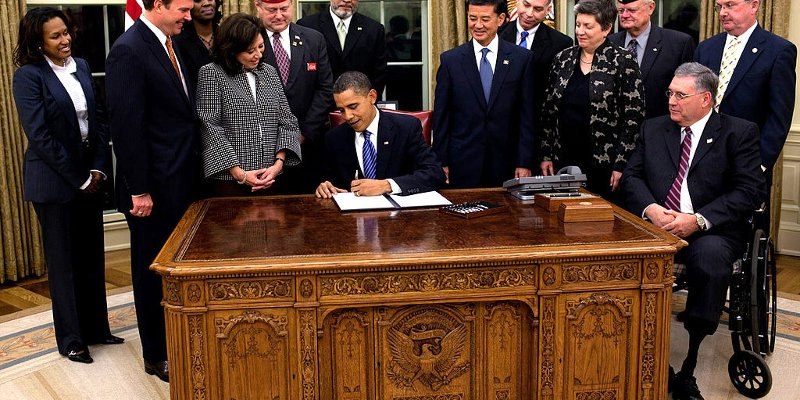When it comes to some executive orders, at least, Republicans and Democrats approve
For Republicans, President Obama’s executive order deferring deportation of illegal immigrants who were brought to the United States as minors generally gets criticism. But there is far less criticism, even support from Republicans -- as well as Democrats -- for some other Obama executive orders on gun control: background checks for internet and gun show purchasers and hiring enough staff to be able to process these background checks.
Most executive orders are viewed through a partisan lens. Republicans are more likely than Democrats to support President George W. Bush’s executive order that allowed enhanced interrogation techniques, while Democrats are more supportive of President Obama’s executive order helping immigrants. And when asked for an overall assessment of presidential use of executive orders – a question phrased in a general way – the public provides opinions that clearly reflect an opinion about President Obama. Three in ten Democrats support executive orders in principle, while three in four Republicans don’t.
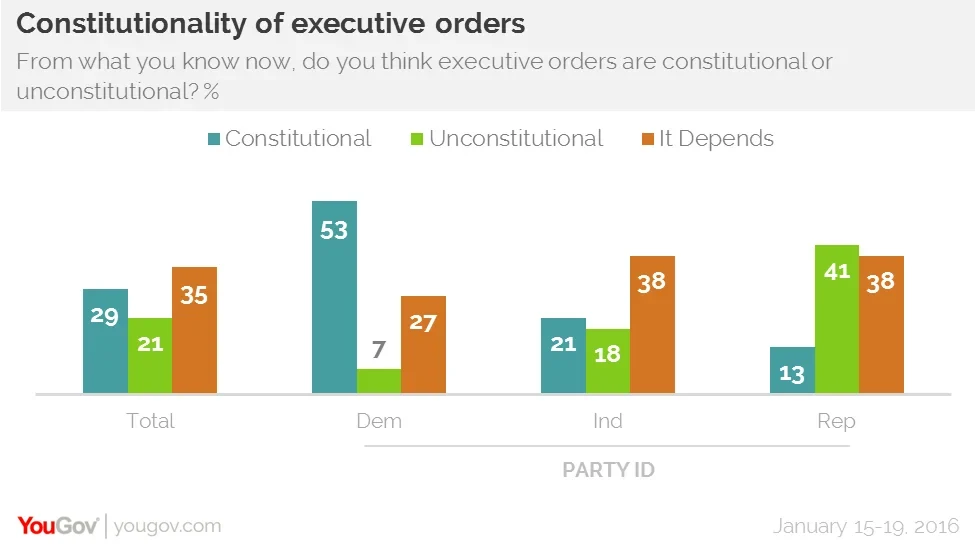
If anything, partisan opinion has hardened since two years ago, when the Economist/YouGov Poll asked the same question.
There are historical executive orders on which there is partisan agreement: Americans of both political parties approve of Abraham Lincoln’s use of an executive order to end slavery in the Southern states during the Civil War, and Harry Truman’s order ending segregation in the military. And members of both parties disapprove of Franklin Roosevelt’s order forcibly relocating Americans of Japanese descent and their families to internment camps during World War II. More than one in five approve of the executive order interning Japanese Americans, however. And more than one in ten say they don’t support using an executive order to end slavery in rebel states or to desegregate the armed forces.
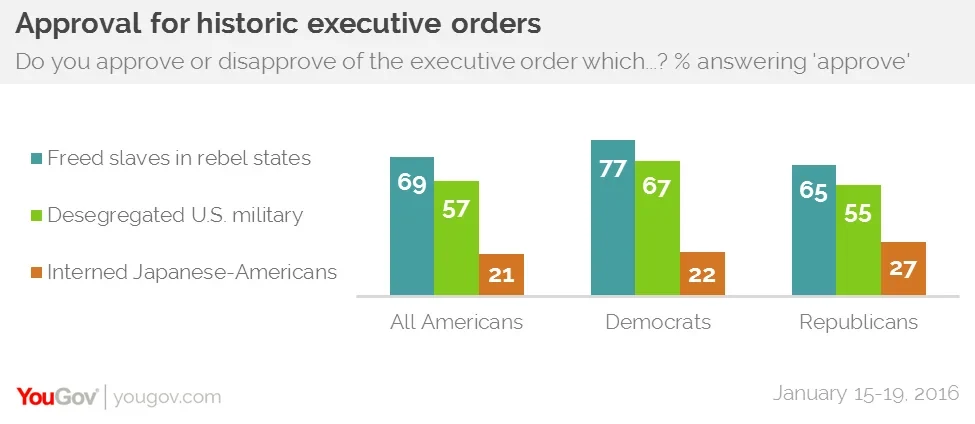
These are not necessarily disagreements based on an opposition to all executive orders. Those who say they disapprove of executive orders in principle are more likely than those who approve to support executive orders like President George W. Bush’s allowing enhanced interrogation methods after the terrorist attacks of September 11, 2001.
The recent Obama gun-related orders are actually popular with members of both parties. They are perhaps seen as small incremental steps that close loopholes, require gun companies to report lost or stolen guns, and hire enough government employees to make sure background checks are processed in a timely manner. Though more popular with Democrats than with Republicans, majorities of Republicans support each of those three.
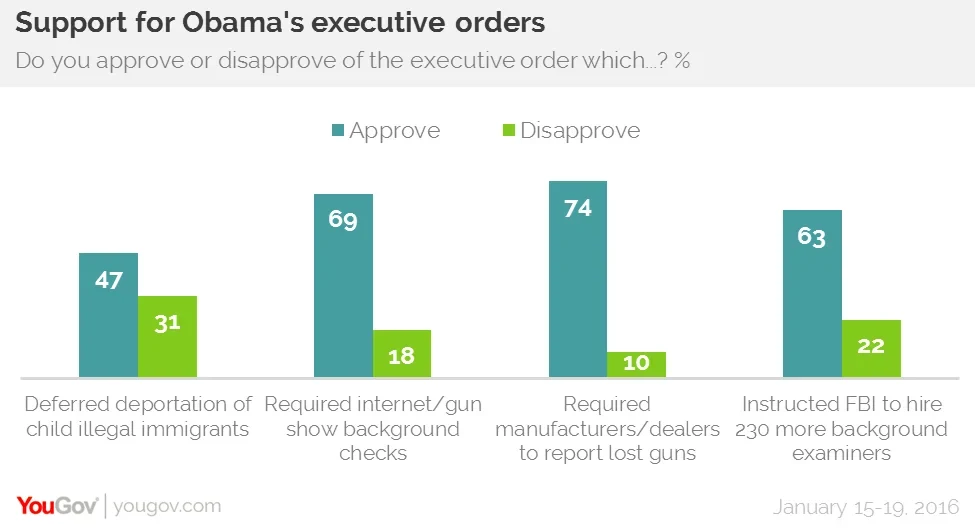
The partisan difference re-emerges in the assessment of the President’s order deferring deportations for those who came illegally to the U.S. as children.
Despite their support for the three gun-related executive orders, Republicans by a two to one margin expect that the GOP will be able to block the implementation of those orders.
Opposing the President is something most Americans think Republicans in Congress do instead of providing policy alternatives. And half the Republicans with an opinion agree.
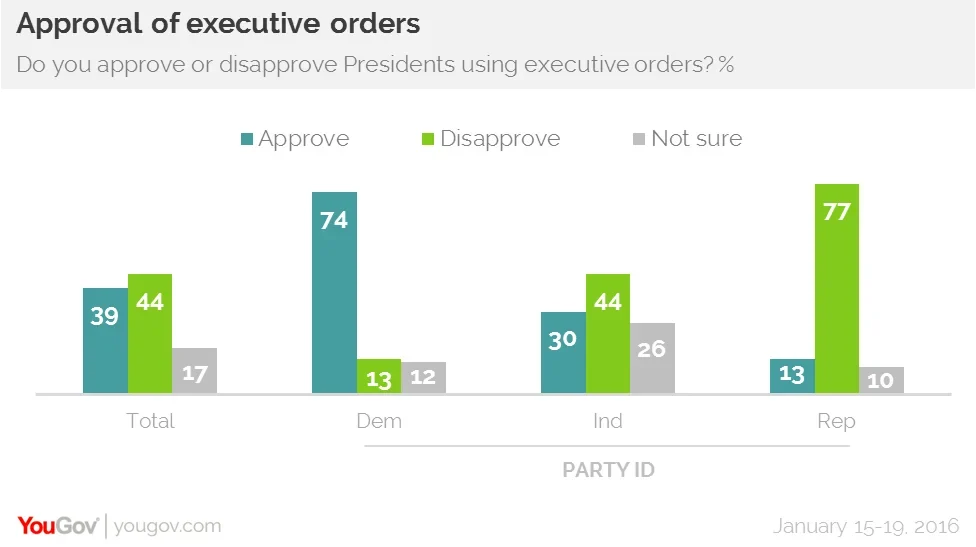
See the Economist/YouGov results
Economist/YouGov poll archives can be found here.
